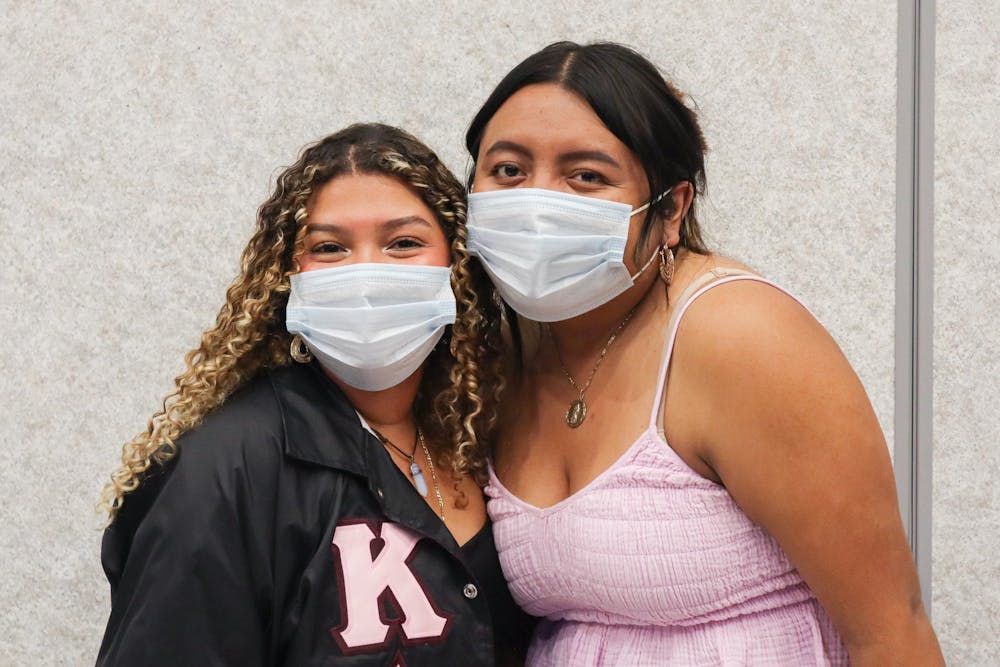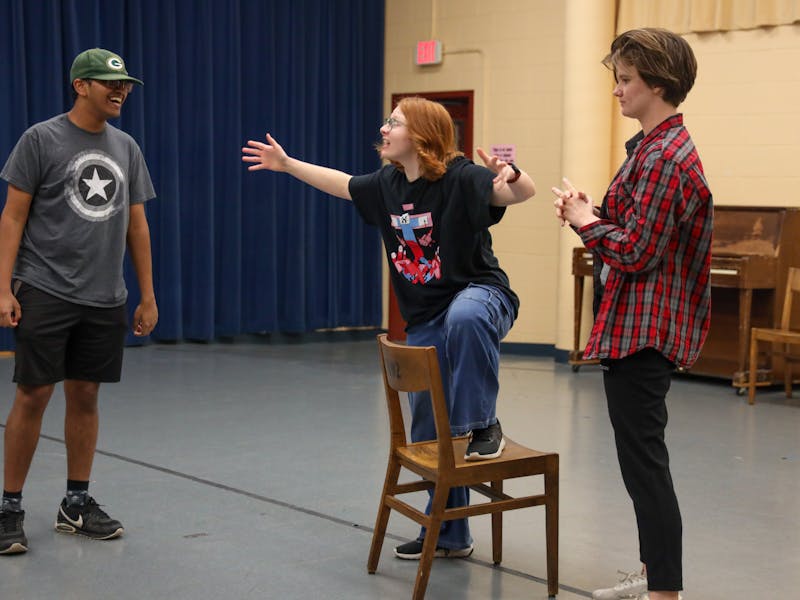Editor's note: A previous version of this article neglected to include Delta Sigma Theta's involvement in the Taste of Culture Event.
When one thinks of the college experience, many buzzwords may come to mind: academics, research, roommates, football, Greek life; the list could go on for four years. The American college experience has become iconic to the rest of the world, and a forerunning piece of this iconography is the emphasis placed on social sororities and fraternities. One aspect of university life that sometimes goes unacknowledged is the opportunity to expose oneself to all different kinds of diversity, be it sexual, gender or ethnic. In recent decades, the overlap between American Greek life and cross-cultural awareness has become ever-prevalent as students are more conscious of learning to expand their worldviews. The world in which we live is a truly global community, and rich diversity manifests itself vividly on the UofSC campus and at other universities worldwide. The cocktail of perspectives offered by students from all backgrounds enriches every part of Gamecock life. It is and will continue to be a key fixture in Greek life.
So many students in the United States go off to college with the dream of joining a sorority or a fraternity, and this goal is so widely shared that it has become a concept almost synonymous with university life in general. Students may want to pledge to a Greek organization to make new friends, network or learn more about their academic and personal interests. However, some people have found a chapter that offers them the chance to learn more about their cultural identity.
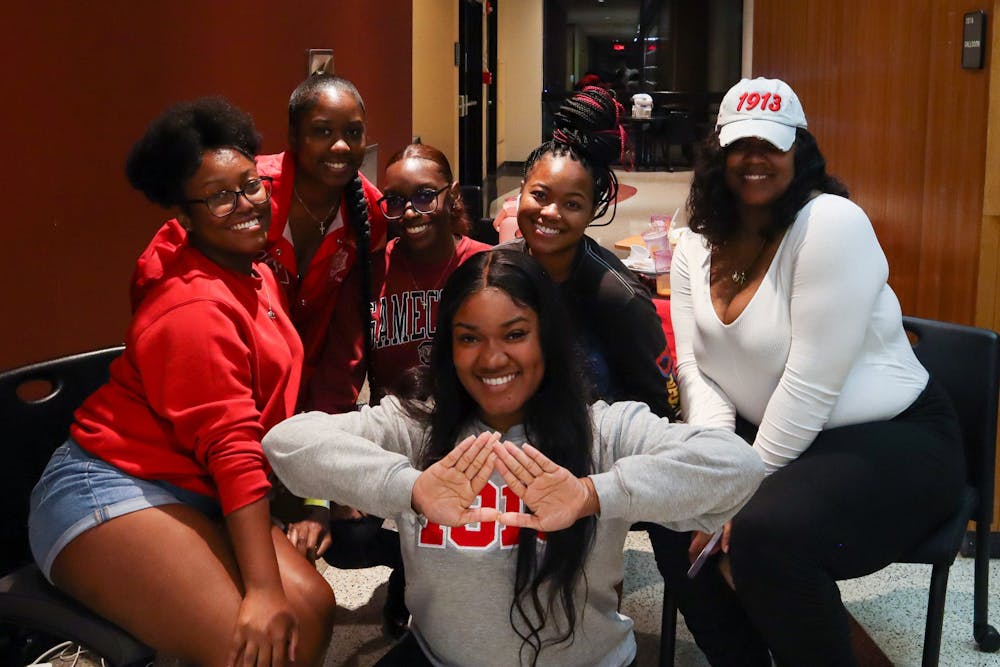
On the UofSC campus, there are five multicultural Greek-lettered sororities and fraternities. These include Alpha Sigma Rho, Delta Phi Omega, Kappa Delta Chi, Pi Alpha Phi and Phi Iota Alpha. While similar to other Greek organizations in that they promote meaningful personal and professional connections, multicultural chapters take their mission a step further. They advocate for the celebration of all cultural identities and for cross-cultural communication and appreciation. This characteristic emphasis on diversity education is the crux of what sets it apart in essence from other lettered organizations.
UofSC is a relatively diverse campus with 27.9% African-American students, 5.3% Hispanic students and 1.5% students of Asian descent. However, the student body is still majority white. Robert John, the Vice President of Phi Iota Alpha, believes that multicultural Greek organizations give minority students a place to find others with similar backgrounds to themselves in the midst of a predominantly white university.
Founded in 1931 and with 82 chapters worldwide, Phi Iota Alpha is the world’s oldest Latino fraternity. While John shared that many chapter brothers join to form friendships and receive professional advice and advancement, there is an additional priceless benefit to choosing a fraternity whose members share similar values and cultural history. The fraternity's mission is to promote appreciation and preservation of Latin American culture among its members and across the UofSC campus as a whole.
The Phi Iota Alpha website explains that the fraternity does not have any formal founders, but the brothers instead look up to a handful of intrepid men whose bravery contributed to liberating Latin America. One commonly shared story is that of José de San Martín, a revolutionary who led a self-trained army across the Andes Mountains and into Santiago, Chile, where they claimed it unopposed by the Spanish. This ode to a proud point in Latin history illustrates one of the main elements of multicultural Greek organizations that differentiate it from other Greek life. Multicultural Greek life fosters an understanding of cultural history and identity among its members and creates a space where members can share in a sense of pride for who they are. John is half Peruvian and Trinidadi, and he said that the unique space cultivated by Phi Iota Alpha has given him an opportunity to learn more about his roots. Multicultural Greek life allows members to navigate college with people from like ethnic backgrounds, but also promotes awareness to every student on campus through outreach events.
Judith Triana-Beltran is the Vice President of Publicity for the Multicultural Greek Council as well as a member of Kappa Delta Chi. As a first-generation student who wanted to find people who shared her Mexican-American heritage, she said that a university’s diversity quotient played a large role in her college decision process. According to Judith, many women join Kappa Delta Chi as a way to connect with ethnic roots that they may not have had the chance to explore earlier in their lives. She sees the chapter as an opportunity to give back to the UofSC campus and to others who share her ethnic background.
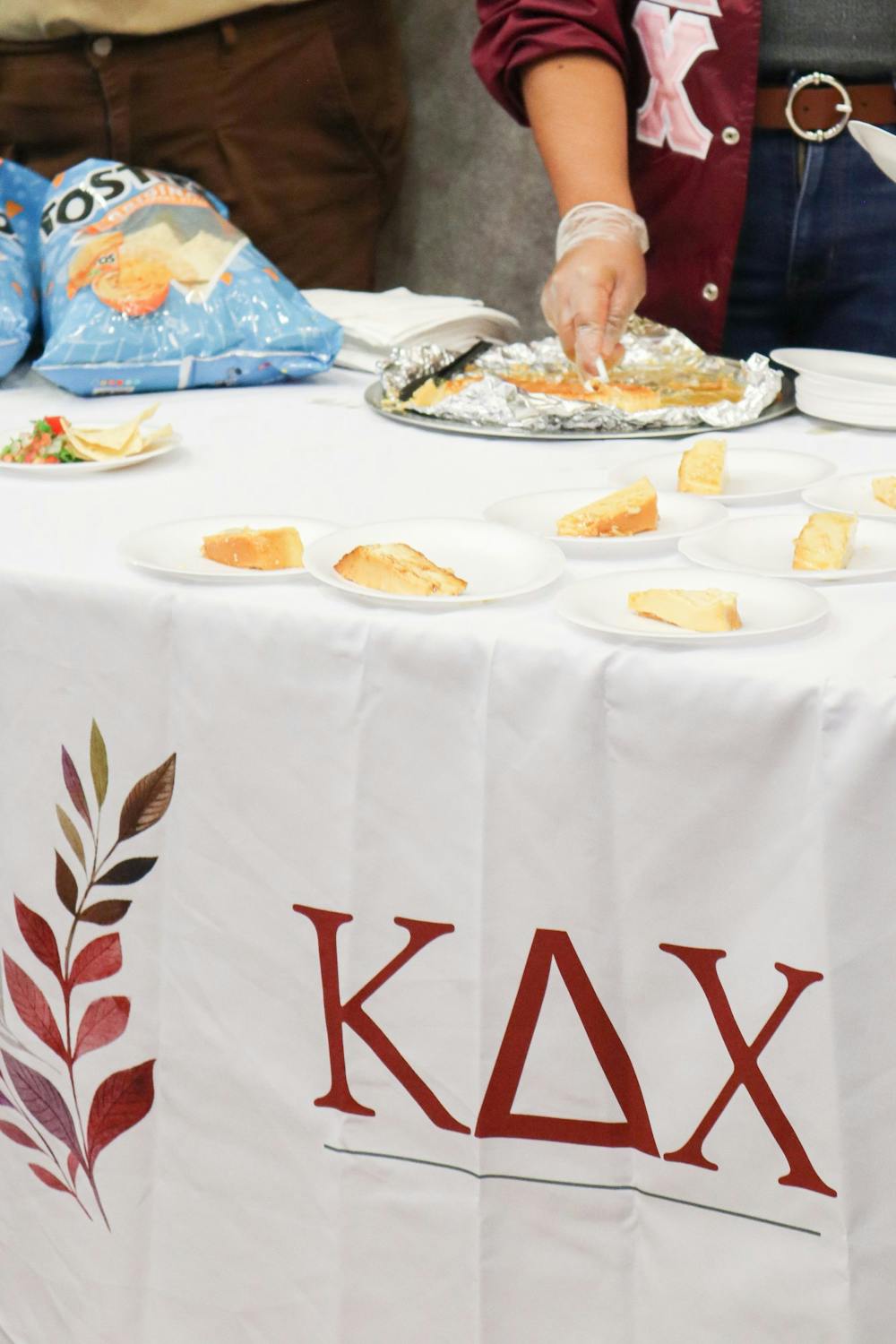
“All of us have a national philanthropy and we try to do local philanthropies as well to help out around Columbia. We try to gear it towards the Latin community,” Triana-Beltran said. Kappa Delta Chi holds an event in the spring to raise money for the American Cancer Society because studies have shown that Latin women are more susceptible to breast cancer. Lately, Kappa Delta Chi has been looking to partner with other chapters to raise funds for those affected by Hurricane Fiona. “Whatever we see affecting the Latin community, we try to fundraise and get on it.” Additionally, Judith said that her sorority has been focusing efforts on establishing a program that will offer scholarships for Latin students or first-generation students who are interested in pursuing higher education.
All of the multicultural Greek organizations hold numerous events on campus every year to give students an opportunity to be exposed to the chapters’ unique respective cultures. On Sept. 27th, the National Pan-Hellenic Council (NPHC) sorority Delta Sigma Theta organized and hosted their Taste of Culture event along with Kappa Delta Chi and Delta Phi Omega where students could come to learn more about Black Southern, Latin American and South Asian cultures and enjoy a plethora of different foods representing different parts of the world. John also talked about the kinds of outreach activities his fraternity holds throughout the year. “With my fraternity, Phi Iota Alpha, we do a march,” he said. “As well as KDChi, they do strolls to Hispanic songs. It’s really cool to watch at our showcase.”
This event has a special significance to the Phi Iota Alpha members as it’s a way for them to commemorate the story of José de San Martín and share those same feelings of pride with other students on campus. Chapters also take part in monthly Multicultural Mondays on Greene Street, which are great opportunities for students to drop in and learn more about the diverse offerings on campus with a DJ spinning world music in the background. These kinds of outreach events play a crucial role in promoting cultural celebration on campus, and multicultural Greek organizations see this as a vital part of their mission. “We like giving a piece of us to campus so that we can share our love for our culture.”
John implores that anyone with a deep desire to learn about a certain culture find a way to become involved in multicultural organizations. He noted that this emphasis on cultural awareness and preservation is one thing that sets his and other multicultural chapters apart from others. “We’re aiming for people who are interested in learning about the culture, learning to be more open-minded, and being able to learn how to approach a person who’s different from you.”
Within Phi Iota Alpha alone, John said that he has a graduated fraternity brother from Pakistan and another from the Middle East, even though Phi Iota Alpha is a Latino fraternity on paper. He added that members from all backgrounds are not just welcomed but also encouraged to get involved. “Especially at a school that’s growing more diverse demographically, or if you want to go to a bigger city, it’s good to have that cultural awareness and sensitivity in who you’re talking to.” It is clear that multicultural Greek organizations offer a safe and receptive place for those searching for others with a similar background, but they also play a vital role in promoting cultural understanding to everyone on campus, regardless of their ethnicity.
With many of these organizations still being somewhat unknown to many students, Triana-Beltran sees campus outreach as an important part of the Multicultural Greek Council's mission. “We are relatively new. We started off as a board in 2014, and officially as a council in 2015, so it’s been seven years,” she said. With so many current and upcoming events sponsored by the council, visibility for these organizations is increasing. While these events are a great way to learn more about different multicultural sororities and fraternities, there is also information available through resources such as Garnet Gate. “It’s important for people to know that we’re here.”
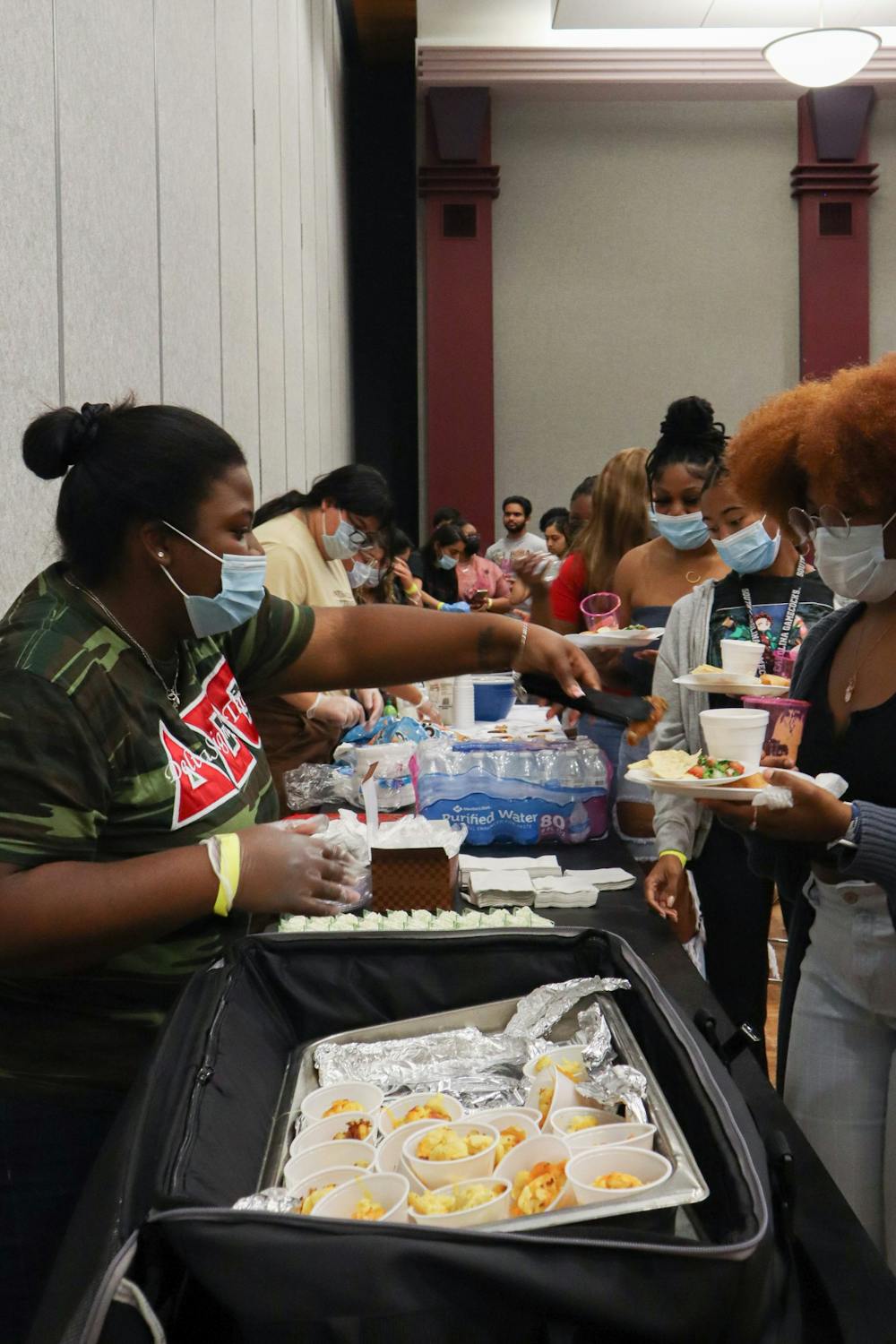
Every Greek organization has a priceless value in the lives of its members, and many graduates and current students will say that they met some of their closest friends in Greek life. In addition, there is something to be said about the depth of the bond created when you share a distinctive sense of identity with the members of your chapter. Friendships are fortified by a passion for preserving cultural history that transcends into a web of deeply personal connections all students long to find. For John, Triana-Beltran and all who are involved in a multicultural organization on campus, these letters signify a sense of pride, community and belonging that strengthens bonds of fellowship in beautiful and unprecedented ways. As Triana-Beltran said, "It's never too late to learn about your culture."
